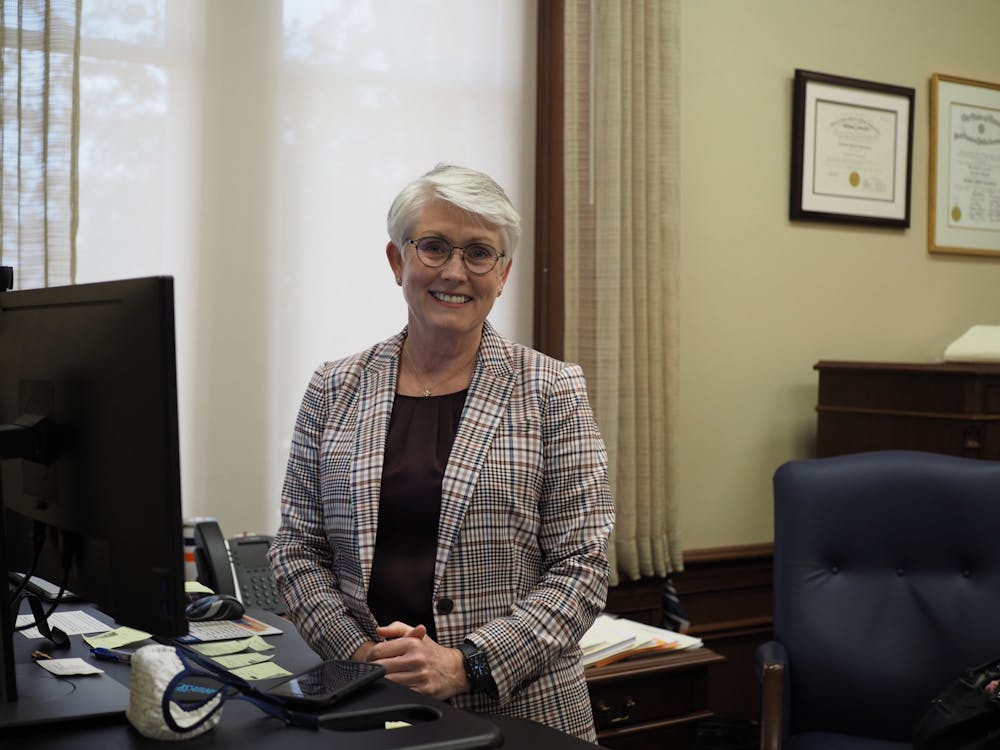Unlike other universities experiencing declines in enrollment, Auburn University has seen a much smaller dip this spring with an expected loss of about $2.5 million in tuition revenue. Kelli Shomaker, the University's chief financial officer, said this “reaffirms that the University is still an institution of choice in Alabama and beyond, despite the challenges of the pandemic.”
“Compared to most of our peers, Auburn has fared extremely well financially,” Shomaker said.
Revenue from tuition has remained steady throughout the past year as the demand for an Auburn education, research and on-campus housing has been reminiscent of previous years, she said.
Although the impact of the pandemic on tuition revenue was smaller than expected, the University struggled to maintain numbers in auxiliary areas that relied on mass gatherings and social events, both of which were heavily scaled down in allotted numbers of attendees the past year because of health concerns.
“Capacities at Jordan-Hare Stadium and Auburn Arena were drastically reduced,” Shomaker said. “Fewer sports fans, alumni and students on campus impacted the bookstore financially. The Gogue Performing Arts Center has been unable to host performances for an entire season. Airport activity has decreased. Employees were working from home and students were learning remotely, so transit fees and parking ticket and permit revenues are down. The veterinary clinics have seen fewer patients."
Shomaker handles a myriad of economic decisions on Auburn’s campus that include these areas, including working with administrators on COVID-19 vaccine policies. In these pursuits, she collaborates with leaders from all areas of the University and federal regulators, finance experts, auditors, and the state budget office.
“My job is to secure Auburn’s financial and physical assets and make sure those assets have a favorable immediate and long-range outlook,” Shomaker said.
Shomaker has been an administrator in higher education for 25 years, spending 16 years at her alma mater, Texas A&M University, before moving to Auburn where she has worked for four years. Before work in higher education, she was an auditor at PricewaterhouseCoopers among other positions. Presently, she serves on the board of control for the Retirement System of Alabama and the Public Education Employees’ Health Insurance Plan outside her role at Auburn University.
In her roles beyond the University, she is involved in the community as a member of the Council of Advocates for the Lee County Boys & Girls Club. In addition to being an advisor to women’s student organizations on campus, she is a board member of the Alabama chapter of Women in Public Finance. She is also a member of the advisory board of the National Association of College and University Business Officers. When she is not working she spends time with her two adult children and enjoys playing golf and traveling, she said.
Shomaker said what brought her to Auburn was that it reminded her of her time at Texas A&M.
“Auburn shares many of the same institutional values with Texas A&M, my alma mater, and because of that, I was drawn to Auburn,” she said. “I was eager to advance professionally, and Auburn was, and is, a very good fit for me.”
In response to the COVID-19 pandemic, Shomaker said her job has changed because of the evolving demands of students and the University as a whole.
“COVID has affected everyone on campus, many of us in similar ways,” she said. “We have had to forge our own path and work together to meet the challenges we have faced over the past year. The resilience and flexibility that we have seen from our students, faculty and staff have been truly remarkable.”
Despite losses in revenue, the University has saved money in other ways since the start of the pandemic. According to Shomaker, the University has saved about $20.6 million in operating costs with the reduction of travel, events, and employees working overtime.
Shomaker said the main sources of revenue for the University are tuition, auxiliary services, research and state appropriations. These funds go towards “advancing … teaching, research and service mission[s], whether that is a construction project like the new Academic Classroom and Laboratory Complex, hiring exceptional faculty or supporting initiatives that improve Alabamians’ quality of life,” she said.
Additional financial aid came from the federal government in the form of the CARES Act which provided the University $41.7 million and helped cover unforeseen expenses related to the pandemic including “modifying campus facilities to make them safer, purchasing PPE, facilitating the transition to remote instruction and providing additional financial relief to students,” Shomaker said.
“Every decision is mission-driven, and students are at the heart of our mission,” Shomaker said. “We always consider: 'How can we continue to prepare students for life and careers; how can we elevate our research enterprise; and how can we improve the quality of life in our state?'”
Despite the financial hardships of the past year, Shomaker said the financial forecast is very strong as the University expects more appropriations to come from the state and continued growth in research.
“Our research portfolio grew by 40% during the last fiscal year, and we anticipate continued increases in awards and expenditures,” she said. “The state of Alabama is fiscally strong, and we are not expecting a negative impact on the financial support we receive from the state.”
Overall, the University as a whole is ready to make advancements that allocate resources where it can best serve students and the institution looking forward, she said.
“We continuously look for ways the University can better fulfill its mission, including improving the student experience and making an Auburn education more accessible,” Shomaker said. “For example, we are more than doubling our allocation for fall 2021 scholarships for first-time freshman in need of financial assistance, and we have committed to increas[ing] all need-based aid from $4 million to $14 million over the next four years.”
Do you like this story? The Plainsman doesn't accept money from tuition or student fees, and we don't charge a subscription fee. But you can donate to support The Plainsman.





